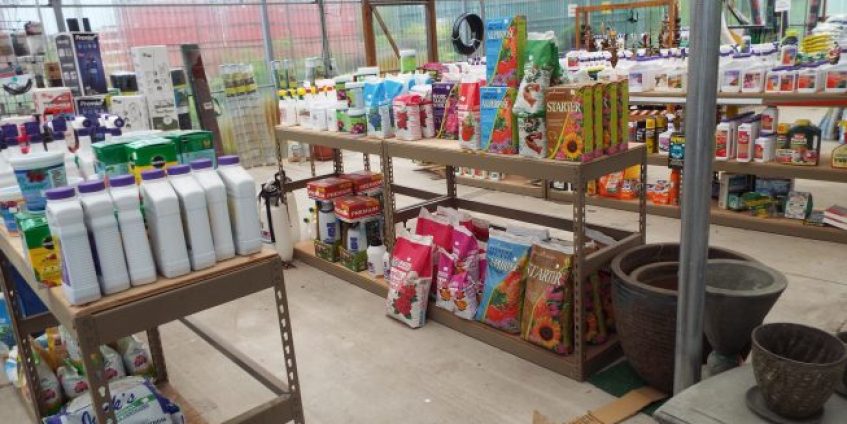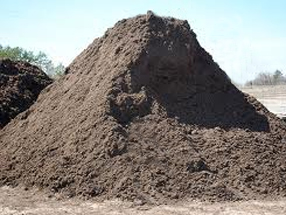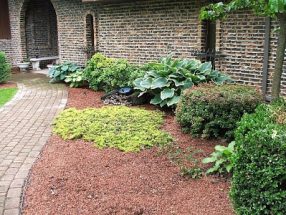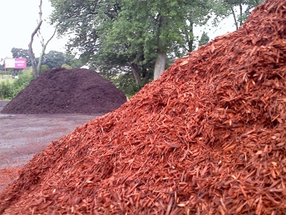(for mulch prices, click above)
Benefits of Mulching
Mulching is one of the best things you can do for your garden. This is the act of placing a protective barrier (mulch) around your plants and over your bare soil. This protective barrier can be made up of a variety of decomposing organic materials, including bark or wood chips (from various tree species), pine needles, straw, and cocoa bean shells, or non-decomposing, non-organic materials such as black plastic, landscaping fabric, recycled tires, pebbles, and river rock.
Controls Weeds
Through the use of mulch, you can limit the number of weeds that spring up in the open spaces of your garden. The mulch acts as a barrier, limiting the amount of sunlight that can find its way to the weeds.
Retains Moisture
Organic mulches absorb water. Organic and non-organic varieties both cover the soil and limit evaporation. Retaining moisture, especially during hot, dry seasons can not only help out your plants, but it can also help out your water bill.
Prevents Soil Erosion
Mulching not only keeps existing water trapped in the soil, it also slows the rain water from washing away your soil. It does this by breaking the fall of the water and therefore lessening the force when the water impacts the ground.
When adding mulch to your garden beds, avoid piling mulch up against the trunk or stems of plants. This can lead to insect and disease issues. Using too deep a layer of mulch can also be a problem – generally, 2 inches or less of mulch is recommended for most plants.
Polishes up your Garden
Mulch can give a garden a finished look by filling in the empty spaces while being one of the easiest fillers to maintain. Grass, groundcovers and other fillers may take extensive care, such as mowing and watering, as well as competing for resources with your garden plants. Mulch is easy to care for and never competes with your other plants.




